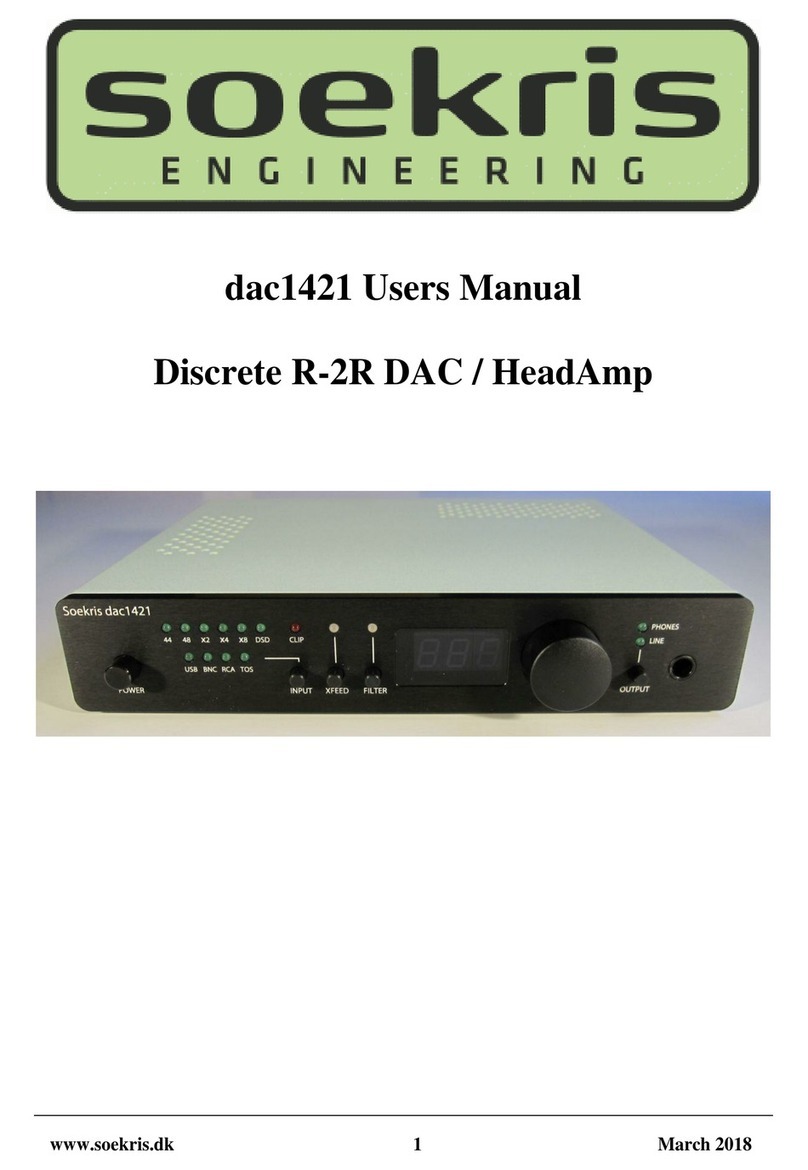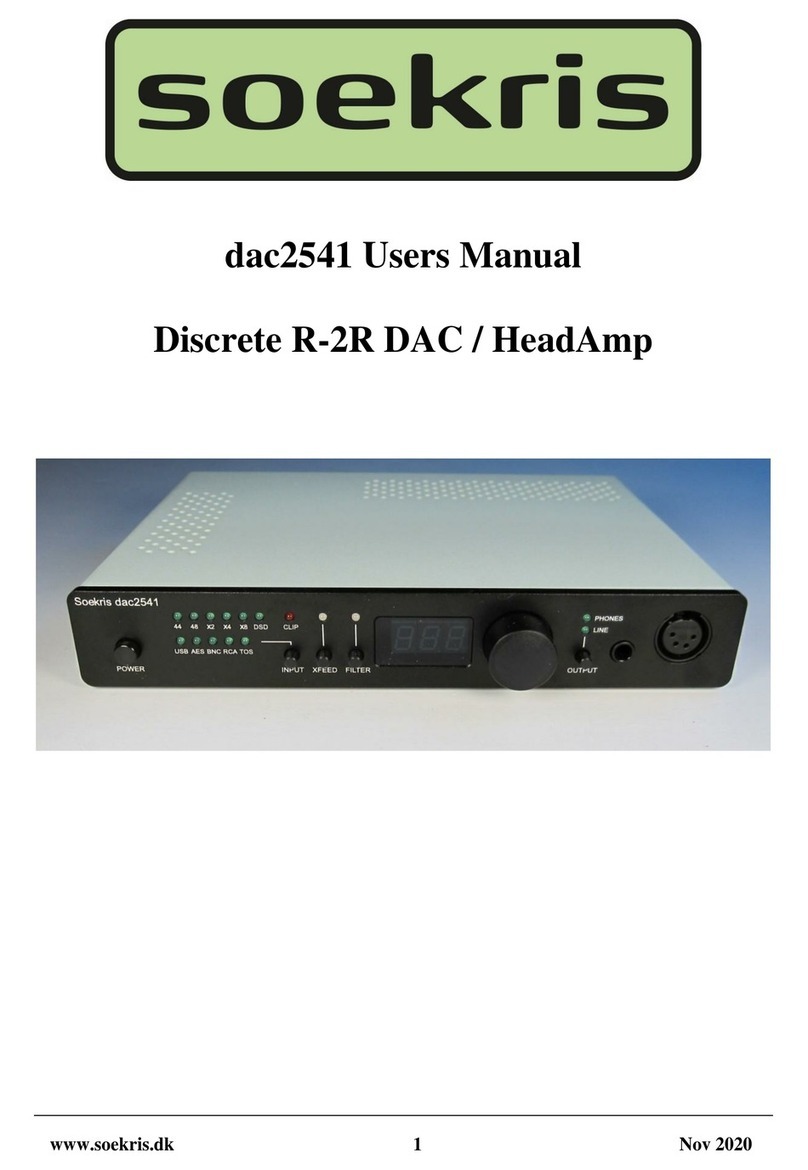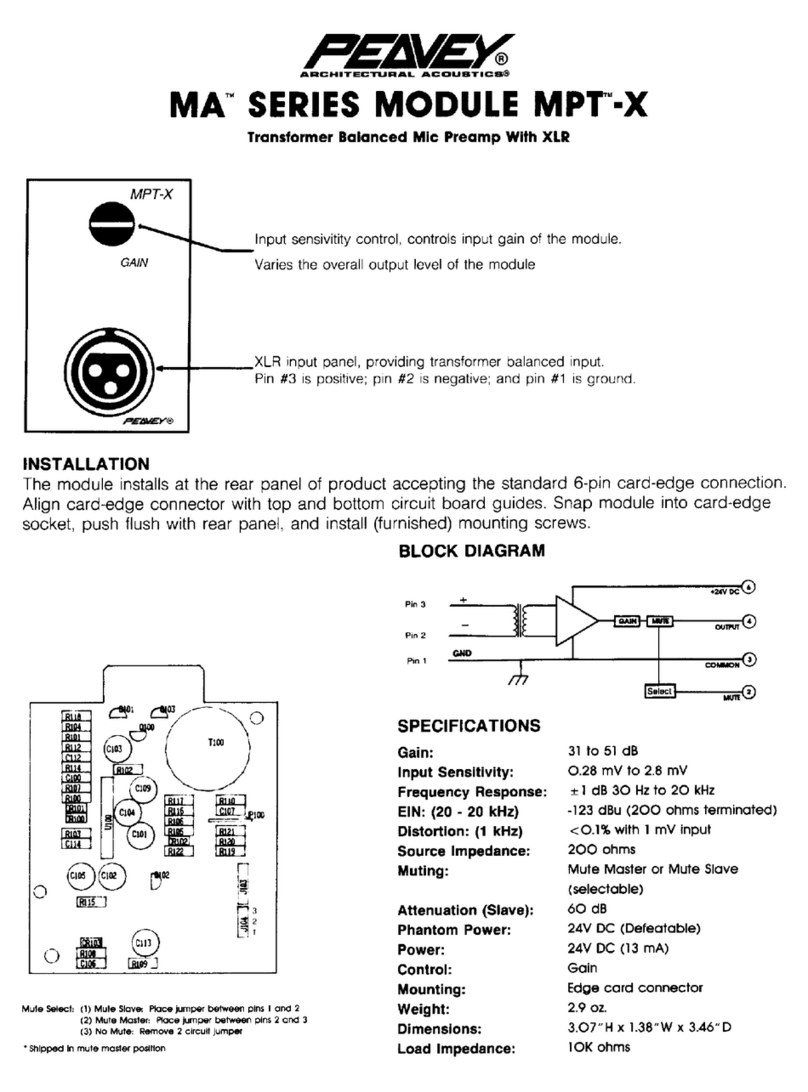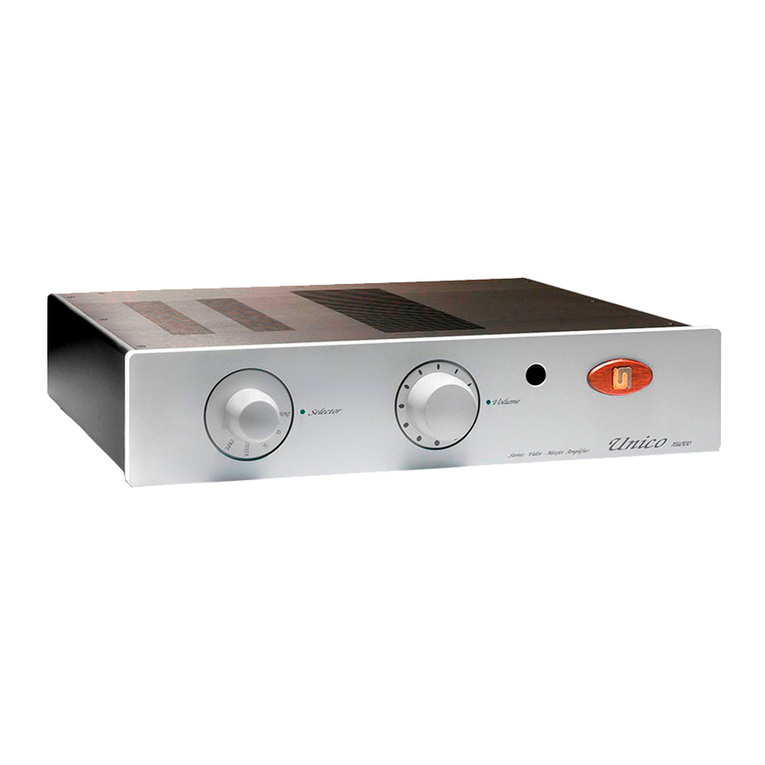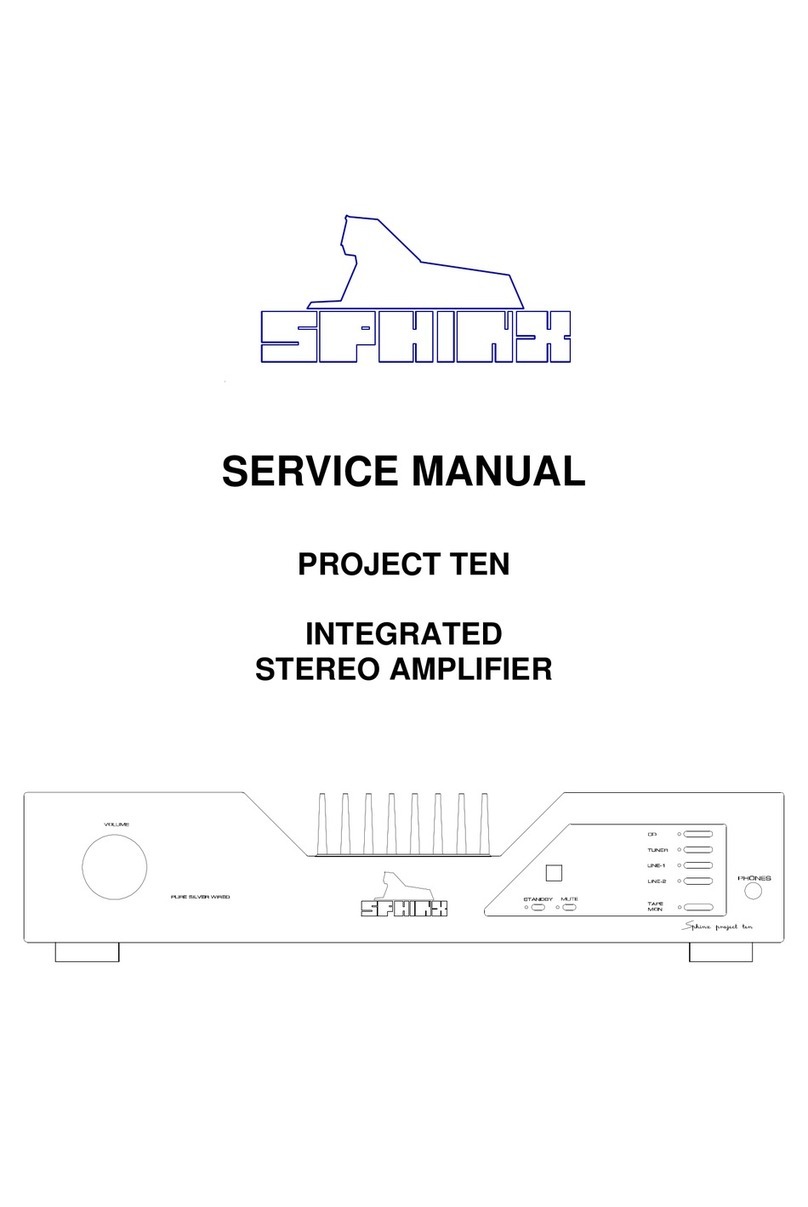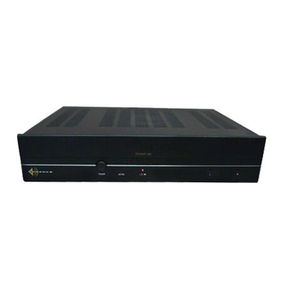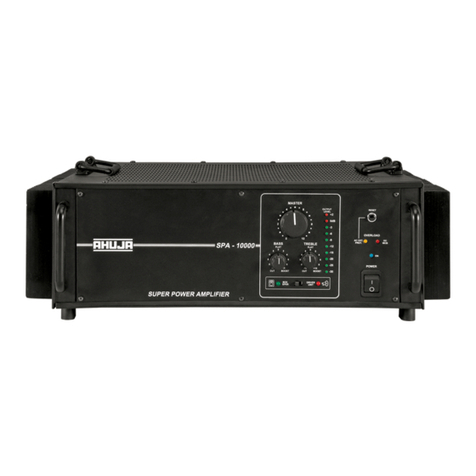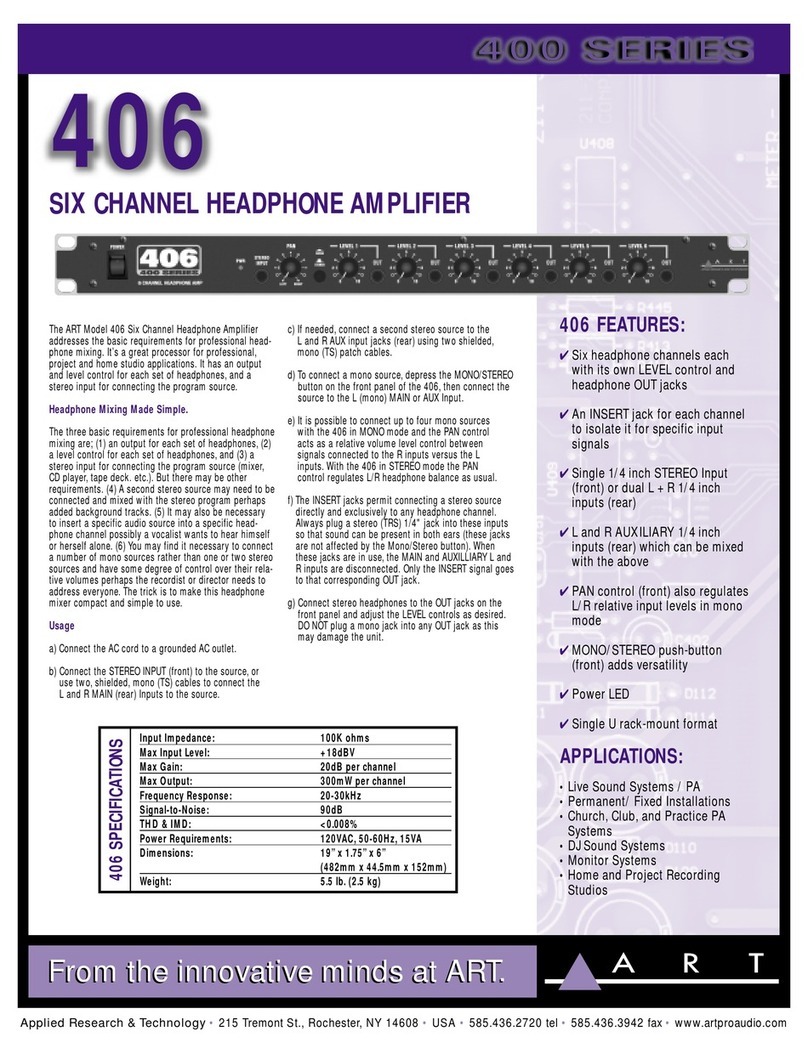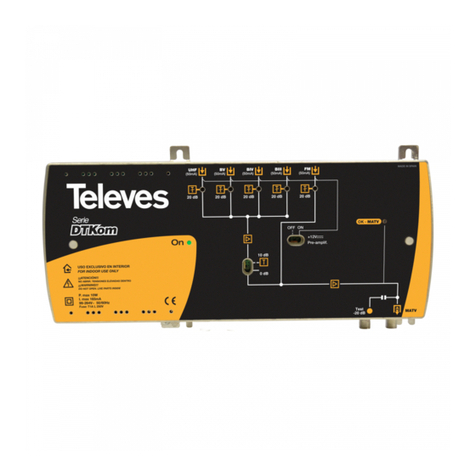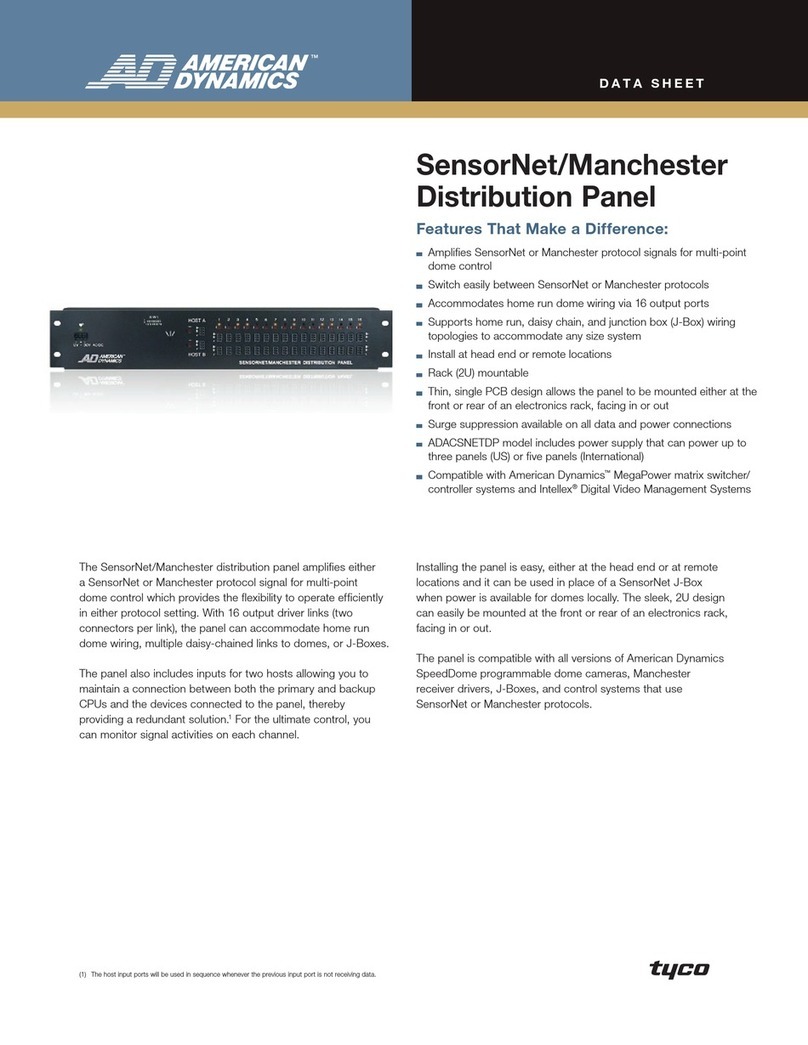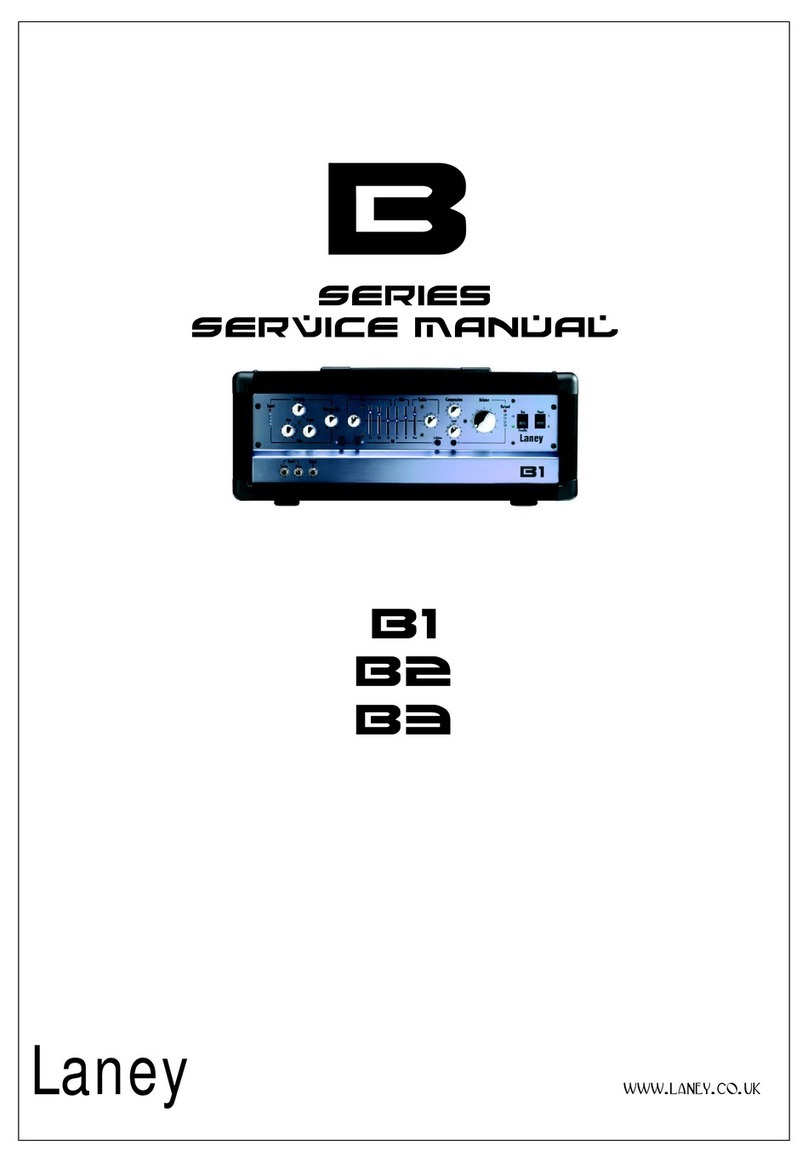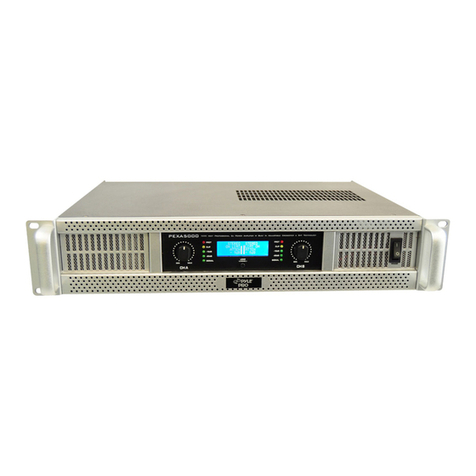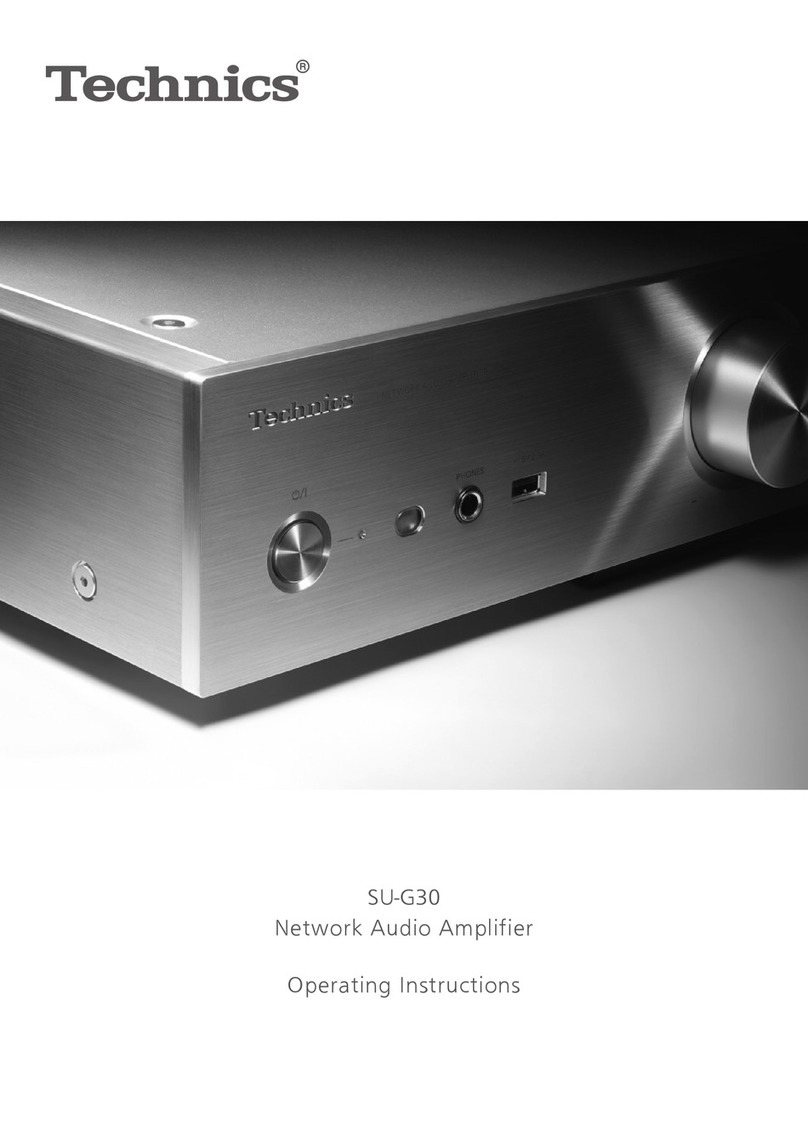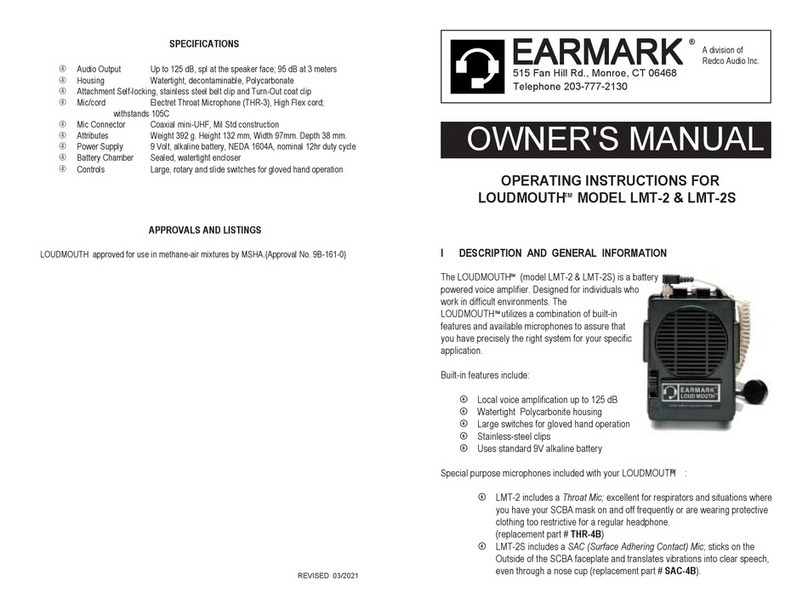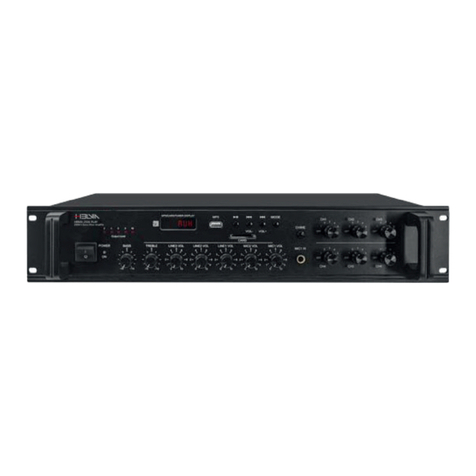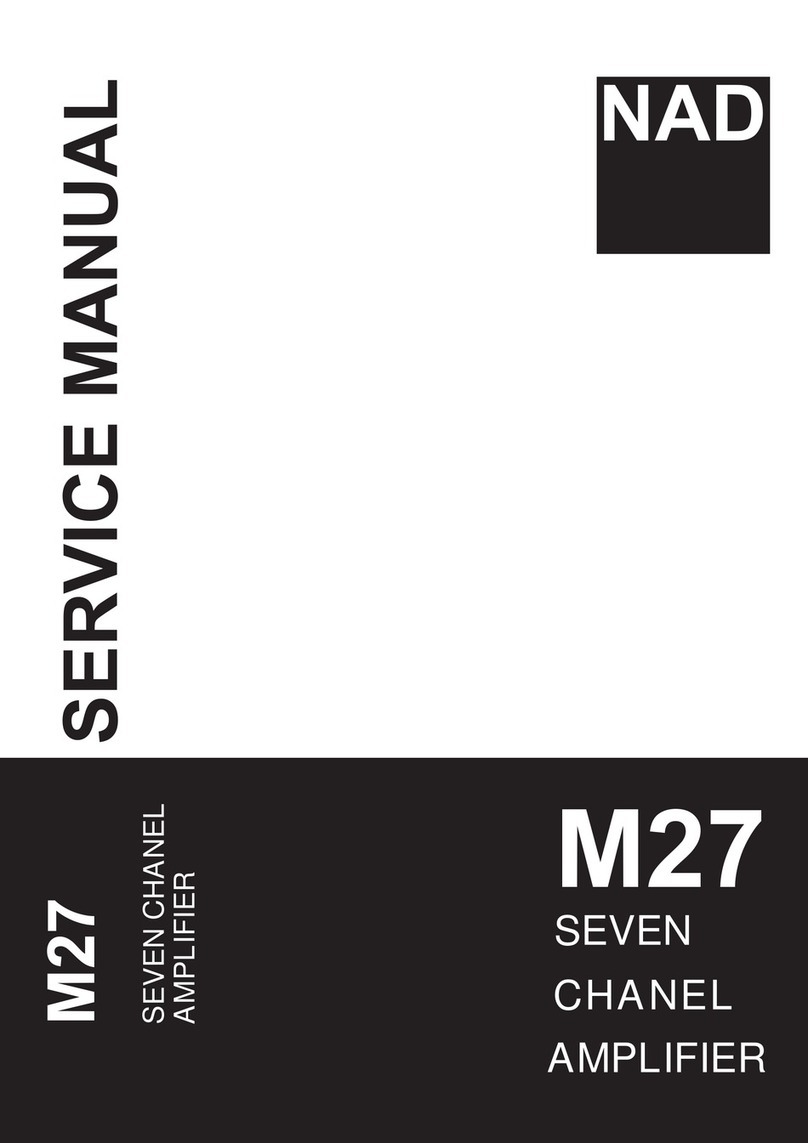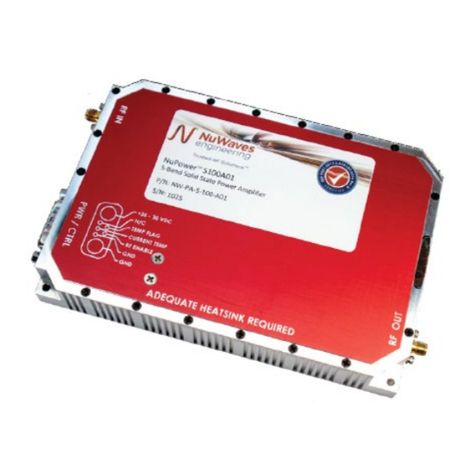Soekris dac1541 User manual

www.soekris.dk 1 July 2017
dac1541 Users Manual
Discrete R-2R DAC / HeadAmp

Soekris Engineering ApS dac1541 Users Manual
www.soekris.dk 2 July 2017
Empty Page

Soekris Engineering ApS dac1541 Users Manual
www.soekris.dk 3 July 2017
Introduction
The Soekris dac1541 is a fully balanced Audiophile discrete R-2R DAC, with USB and SPDIF
inputs and outputs to either the built in headphones amplifier on a front mounted XLR or 6.3mm
Jack, or to line level outputs on rear mounted XLR and RCA Phono connectors. The dac1541 is not
just any regular DAC, the sound quality is the absolute best available, thanks to the ultra high end
design with a discrete R-2R sign magnitude DAC using a total of over 400 small and very precise
resistors, discrete headphones amplifiers with zero negative feedback, delivering high power to
almost any headphones, all powered by high reliability switch mode power supplies with 6 discrete
linear low noise and low impedance power regulators and 3 low noise regulators for the digital
parts.
The dac1541 R-2R DAC circuit is fully isolated from the noisy computer USB interface and the
SPDIF inputs are also all transformer isolated. It supports input signals on the USB interface up to
24 bit / 384 Khz PCM audio, and up to DoP-128 (x2) and DSD-256 (x4) audio, or up to 24 bit / 192
Khz PCM audio on the various SPDIF interfaces. It has a fully digital volume control and four sets
of digital anti-aliasing filters to fit any taste, and have a flexible crossfeed circuit for the
headphones. The dac1541 is designed and built in Denmark, using advanced surface mount
technology and parts from only the highest quality suppliers, with a full aluminum casing.
Quick Start
Plug in the supplied USB Cable to the dac1541 and connect it to your computer, plug in your
headphones, set the rear left switch to “PHONES”, set the rear right switch to “USB1”, select
“soekris dac1xxx” as output in your computer settings and start playing music. The default power
up settings for volume, anti-aliasing filters and xfeed are stored in flash memory and can be
changed, see front view description for details.

Soekris Engineering ApS dac1541 Users Manual
www.soekris.dk 4 July 2017
Specifications
THD @ -1 dB
<0.005%
THD @ -60 dB
<0.02%
Clock Jitter RMS
0.3 pS typical
Discrete Resistor Network
27 bit, 0.01% - 0.02% Resistors
S/N 20 Khz Bandwidth
>123 dB unweighted
Frequency Range @ 44.1 Khz
20hz - 20Khz +0.1 -1.0 dB
Frequency Range @ 384 Khz
20hz - 80Khz +0.1 -1.0 dB
USB Input
Type B, Isolated, Full / High Speed
USB Input Mode Selectable
Audio Class 1.0 or Audio Class 2.0
USB Input PCM
Up to 24 Bit / 384 Ksps
USB Input DSD
Up to DoP-128 and DSD-256
SPDIF Inputs
RCA / BNC / AES / Toslink
SPDIF Inputs PCM
Up to 24 bit / 192 Khz
Digital volume control
-80 dB to +10 dB
Output Line
RCA, 2.0V RMS, Zout 50 ohm
Output Line Balanced
3 pins XLR, 4.0V RMS, Zout 100 ohm
Output Headphones
6.3 mm Jack, 6.5V RMS, Zout 1.5 ohm
Output Headphones Balanced
4 pins XLR, 13V RMS., Zout 3 ohm
Power Consumption
90-264V AC, max 35W
Size
250 x 205 x 40 mm
Weight
1.5 Kg
Warranty
3 Years

Soekris Engineering ApS dac1541 Users Manual
www.soekris.dk 5 July 2017
dac1541 front view
“POWER” button: Main power switch.
The LED’s on the front indicates input sample rate, input source, crossfeed setting, anti-aliasing
filters selected, selected output and a clip indicator.
When input is Linear PCM audio
When input is DSD or DoP audio
PCM 44 Khz
“44” LED on
DoP/DSD-64
“DSD” on
PCM 48 Khz
“48” LED on
DoP/DSD-128
“DSD” and “X2” on
PCM 88/96 Khz
“X2” LED on
DoP/DSD-256
“DSD” and “X4” on
PCM 176/192 Khz
“X4” LED on
PCM 352/384 Khz
“X8” LED on
“CLIP” indicator: Will blink when the DAC output signal is clipping. You should not turn the
volume knob higher than to where the red “CLIP” LED will not blink.
“INPUT” button: Select between the possible input source and an automatic mode, which is the
default at power up.
“XFEED” button: Select the Crossfeed mode for Headphones, it’s only active when using the
Headphones. The Crossfeed function is used to make the stereo image smaller, to make it sound
more like the stereo image from speakers.
“XFEED” LED color shows the current crossfeed mode selected for the headphones
Off
Crossfeed circuit disabled
Green
Small Crossfeed, -12 dB sent to other channel
Orange
Medium Crossfeed, -8 dB sent to other channel
Red
Large Crossfeed, -5 dB sent to other channel
“FILTER” button: Select between the different anti-aliasing filters. Hold for minimum 4 seconds
to store the current volume level, crossfeed setting and anti-aliasing filter selection, one setting for
Line Out and one setting for Headphones Out, the filter setting is common for both.
“FILTER” LED color shows the current anti-aliasing filter selected
Red
Linear Phase filter, also called brickwall filter
Orange
Mix between Linear and Minimum Phase filter
Green
Minimum Phase filter, also called butterworth filter
Off
Soft Minimum Phase filter, a soft butterworth filter

Soekris Engineering ApS dac1541 Users Manual
www.soekris.dk 6 July 2017
Volume Knob: The volume LED display indicates current volume, from -80 dB to +10 dB. The
volume knob is using a digital encoder to set the volume level digitally from -80 dB to +10 dB in
precise 1 dB steps. If you connect the Line Out to a system with a volume knob you might want to
set the dac1541 Line Out volume startup level to a fixed 0 dB, you can do that by selecting Line
Out, turning the volume up to -4 or higher, then store the startup setting by pressing and holding the
“FILTER” button for 4 seconds. The volume control is then inactive, it can be made active again by
holding the “FILTER” button for 4 seconds again.
“OUTPUT” button: Selects where the audio signal will go, when the “LINE” LED is on it will go
to the Line Out on the RCA Phone sockets and the balanced XLR sockets, when the “PHONES”
LED is on it will go to Headphones Jacks on the front. The output not selected will be muted.
6.3 mm Jack: is for connecting to a set of headphones, almost any type can be used, the loading
impedance should be minimum 16 ohm, high impedance types work very well. The dac1541 is able
to output minimum 6.5V RMS into 32 ohm or higher, in power that is 1300 mW into 32 ohm, 400
mW into 100 ohm or 140 mW into 300 ohm.
4 pins XLR socket: is for connecting to a set of balanced headphones, almost any type can be
used, the loading impedance should be minimum 32 ohm, high impedance types work very well.
The dac1541 is able to output minimum 13V RMS into 50 ohm or higher, in power that is 3400
mW into 50 ohm, 1700 mW into 100 ohm, 560 mW into 300 ohm or 280 mW into 600 ohm. The 4
pins XLR socket pinout is the de facto standard as used by Sennheiser and others.
Remote Control: The dac1541 have support for using a remote controller to adjust the volume
level and to select input source. The remote need to be an Apple remote or a compatible one. The
dac1541 as default will not be locked to a remote, but can be locked to a specific remote using its
device code. To lock the dac1541 to a remote, first press the “XFEED” button for 4 seconds until
the “CLIP” indicator lights, then press any button on the remote. If you don’t press any button on
the remote before the “CLIP” indicator goes off then the dac1541 will go back to its default setting
of not being locked to a specific remote. You then also need to store the new remote setting by
pressing the “FILTER” button for 4 seconds.

Soekris Engineering ApS dac1541 Users Manual
www.soekris.dk 7 July 2017
dac1541 rear view
Analog Out: The dac1541 have balanced line out using 3 pins XLR sockets, marked “R” for the
right channel and “L” for the left channel. It also have single ended line out using RCA sockets, the
red one marked “R” is for the right channel, the white one marked “L” is for the left channel.
Digital In: The dac1541 have a total of 5 digital inputs.
“TOS”:SPDIF Optical Toslink.
“RCA”:SPDIF 75 ohms Coax, transformer isolated.
“BNC”: SPDIF 75 ohms Coax, transformer isolated.
“AES”: SPDIF 110 ohms balanced AES/EBU, transformer isolated.
“USB”: USB type B socket: For connection to the USB interface on your computer or other audio
source device. You need to use a high quality USB cable, like the USB cable included with the
dac1541. The switch next to the USB socket is used to select between USB Audio Mode 1, which
can be used without drivers on Windows operating systems, and USB Audio Mode 2, which
require drivers for Windows operating systems.
Windows Drivers: Drivers for using USB Audio Mode 2 on Windows operating systems are
available for downloading on http://www.soekris.dk/download.html. Please note that most newer
versions of Apple OS X or Linux don’t require drivers but will support USB Audio Mode 2
directly, see manual for your operating systems as needed.
Power Socket: The dac1541 support power input voltage from 90V to 264V AC using a IEC14
socket with protective ground, which should enable it to work worldwide directly. The power
socket has a built-in fuse holder. If the fuse ever become defect please replace it with a 5x20 mm
1AT fuse rated for 250V use.
Power Cable: The dac1541 is supplied without a power cable, but any power cable designed to fit
between an IEC14 socket and the wall power socket in your country can be used, it don’t need to be
anything fancy.

Soekris Engineering ApS dac1541 Users Manual
www.soekris.dk 8 July 2017
Conformity Declarations
This equipment has been tested and found to comply with the limits for a Class B digital
device, pursuant to Part 15 of the FCC rules. These limits are designed to provide
reasonable protection against harmful interference in a residential installation. This
equipment generates, uses and can radiate radio frequency energy and, if not installed and used in
accordance with the instructions, may cause harmful interference to radio communications.
However, there is no guarantee that the interference will not occur in a particular installation. If this
equipment does cause harmful interference to radio or television reception, which can be
determined by turning the equipment off and on, the user is encouraged to try to correct the
interference by one or more of the following measures:
- Reorient or relocate the receiving antenna.
- Increase the separation between the equipment and receiver.
- Connect the equipment into an outlet on a circuit different from that of the receiver.
- Consult the dealer or an experienced radio/TV technician for help.
In order to maintain compliance with FCC regulations shielded cables must be used with this
equipment. Operation with non-approved equipment or unshielded cables is likely to result in
interference to radio & television reception.
Application for Council Directives 2011/65/EU, 2014/30/EU
Conformity declared for EN55022 Class B, EN55024
This marking indicates that this product should not be disposed with other household
waste throughout the EU. To prevent possible harm to the environment or human health
from uncontrolled waste disposal and to conserve material resources, this product
should be recycled responsibly. To dispose of your product, please use your local return
and collection systems.
Contact Information
Soekris Engineering ApS
Servicevej 6
DK-4220 Korsør
Denmark
http://www.soekris.dk
Table of contents
Other Soekris Amplifier manuals
